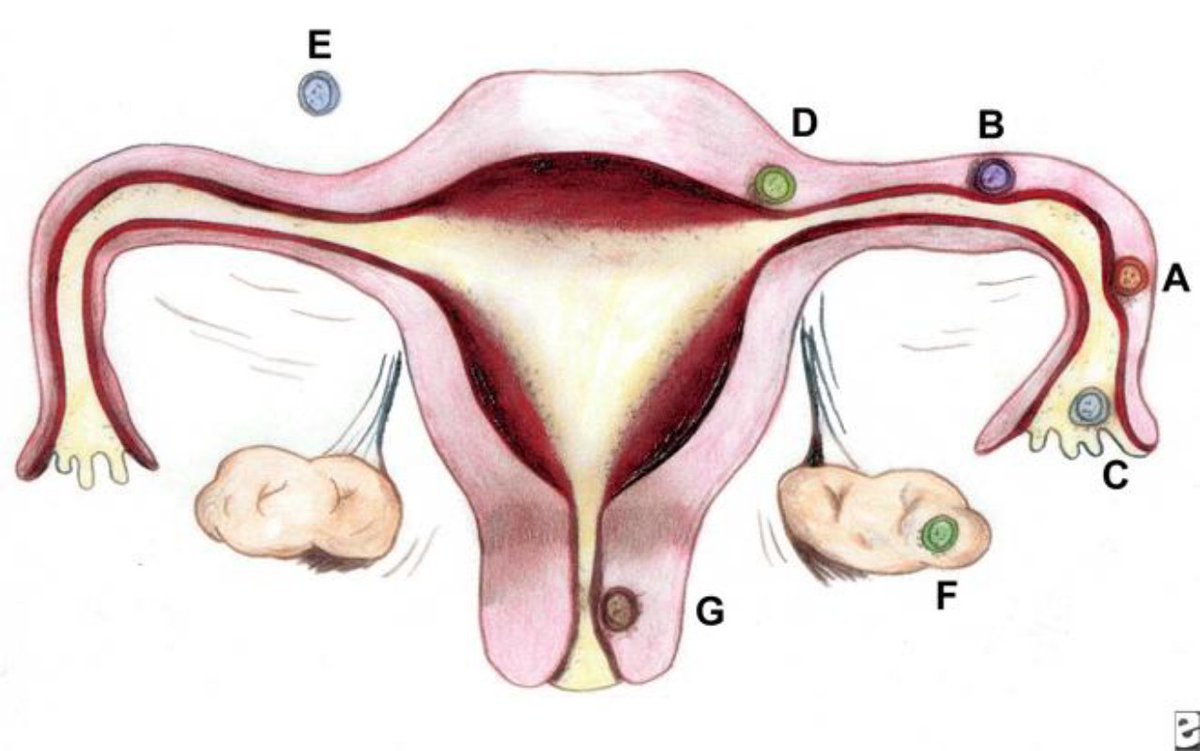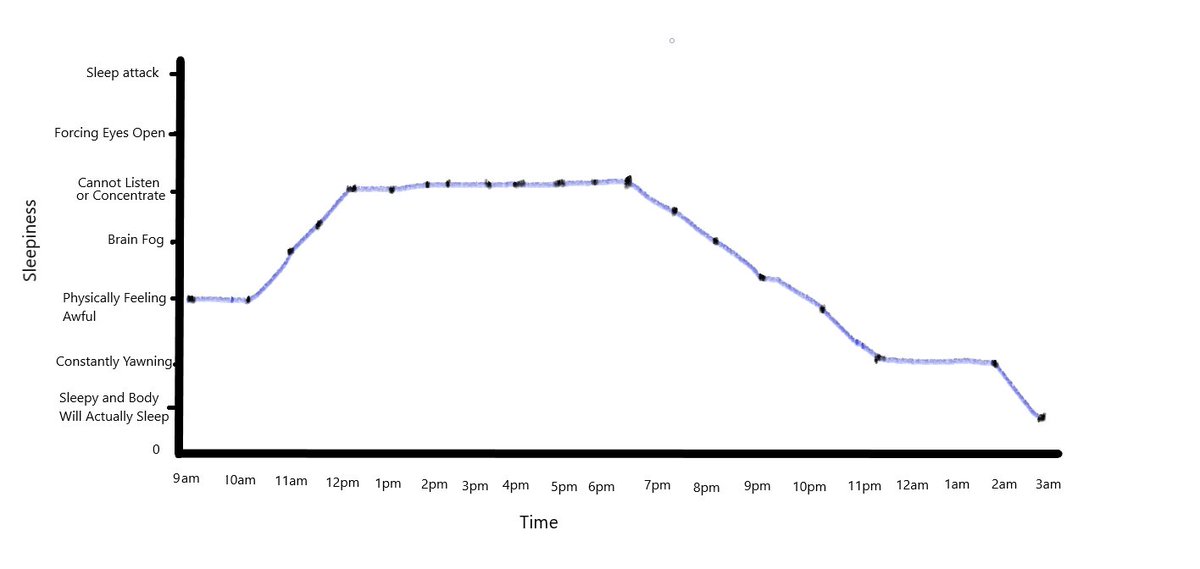Either frustration from behaviour not producing expected outcomes, or frustration from someone not doing what one asks.
Here's an interesting ncbi article on rage:
Either frustration from behaviour not producing expected outcomes, or frustration from someone not doing what one asks.
Get someone to do something in order to get a reward. Suddenly stop rewarding them for that. Bam, frustration and then rage.

Bam, frustration and then rage.

Keep at it, and you enrage them.
https://t.co/pqJwf6fgKQ
More from Anosognosiogenesis
Another reason you are dead within 1.5 seconds of encountering your first fast zombie, is adrenaline.
The Tueller Drill is interesting.https://t.co/D6p3zRRV52
— Anosognosiogenesis (@pookleblinky) December 20, 2020
Most people who get attacked with a knife and survive to talk about it, say they never even knew a knife was there.
Or that they'd been stabbed, until after the fact.
In many cases, they think they'd just been punched, and are completely surprised
One reason the adage is "the winner is the one who dies in the ambulance, not the gutter," is because it's entirely possible to receive a fatal wound, not realize it, and then inflict a fatal wound on the other guy without *him* realizing it.
A dozen times within 30 seconds.
The marker drill teaches how you *will* get cut, fatally, without realizing it.
In full adrenaline freakout, this is even more pronounced.
1. Make a file called 1235.txt containing, one per line, all 24 unique permutations of the elements 1 2 3 5.
Claude Shannon made this machine to play the hex board game.
— Anosognosiogenesis (@pookleblinky) January 21, 2021
It is literally just a mesh of resistors and some light bulbs. No logic gates, no programming, nothing at all resembling AI.
Check it out: https://t.co/Zoyc9TmBcN pic.twitter.com/EANeMosPhT
2. Cp 1235.txt to D.txt
3. Use sed to convert the numbers in D.txt to notes. Now you have 24 permutations of the major tetrachord in D.
4. Play them each. If it sounds like it increases tension, mark the beginning of that cell in 1235.txt with a +. If it sounds like it decreases tension, mark with a -.
Now those 24 melodic cells are divided into two groups: tension increasers and resolvers.
5. Rinse and repeat for all 12 keys.
You now have 13 plaintext files, filled with stuff like + 1 2 5 3 and - D E F# A
6. Figuratively roll dice to decide, given a +/- cell, what the next cell should be.
33% chance a + follows a +, etc.
Now you're outputting a stream of dynamic tensions: ++-+++-+-+---+ etc
More from Health
Charting early steps for H₂ infrastructure in Europe.
👉Summary of conclusions of a new study by @AgoraEW @AFRY_global @Ma_Deutsch @gnievchenko (1/17)
https://t.co/YA50FA57Em
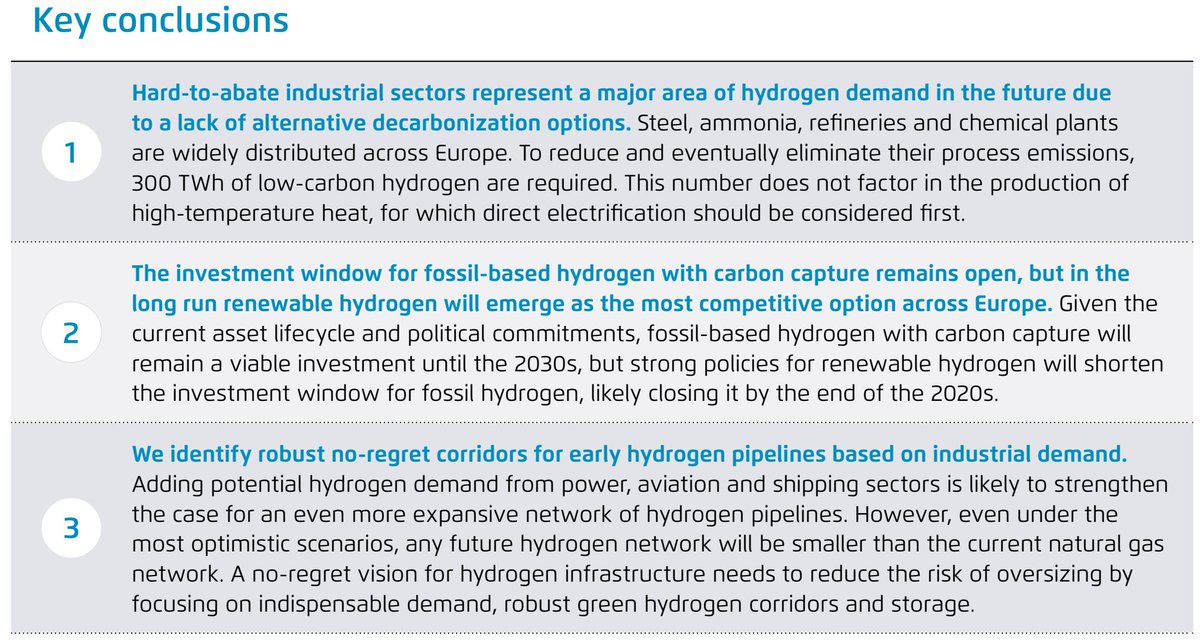
The idea behind this study is that future hydrogen demand is highly uncertain and we don’t want to spend tens of billions of euros to repurpose a network which won’t be needed. For instance, hydrogen in ground transport is a hotly debated topic https://t.co/RlnqDYVzpr (2/17)
Similar things can be said about heat. 40% of today’s industrial natural gas use in the EU goes to heat below 100°C and therefore is within range of electric heat pumps – whose performance factors far exceed 100%. (3/17)

Even for higher temperatures, a range of power-to-heat (PtH) options can be more energy-efficient than hydrogen and should be considered first. Available PtH technologies can cover all temperature levels needed in industrial production (e.g. electric arc furnace: 3500°C). (4/17)
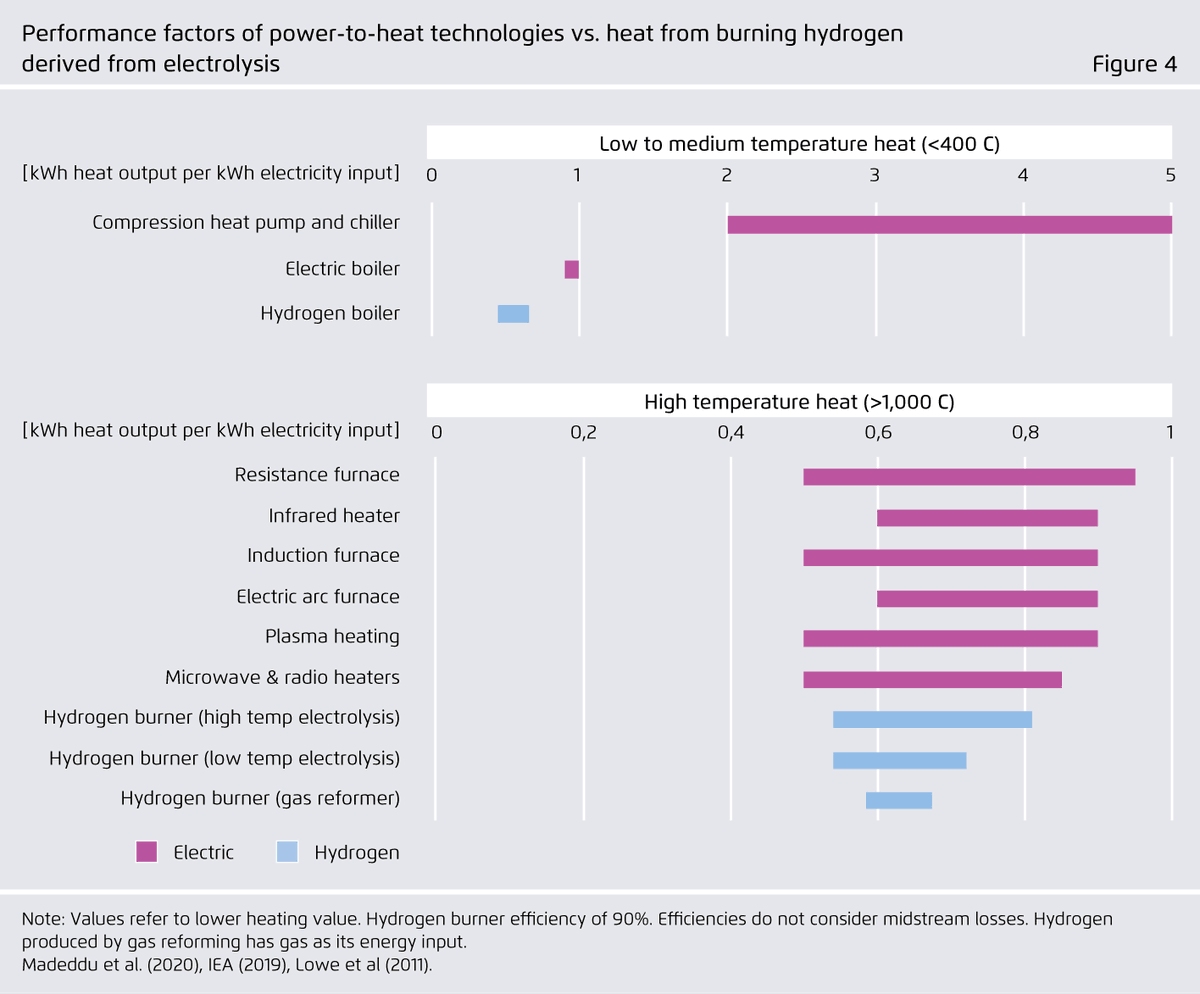
In our view, hydrogen use for feedstock and chemical reactions is the only inescapable source of industrial hydrogen demand in Europe that does not lend itself to electrification. Examples include ammonia, steel, and petrochemical industries. (5/17)
The Health Protection (Coronavirus, Restrictions) (All Tiers and Self-Isolation) (England) (Amendment) Regulations 2021
£800 'house party' FPN & police can now access track & trace data
https://t.co/k9XCpVsXhC
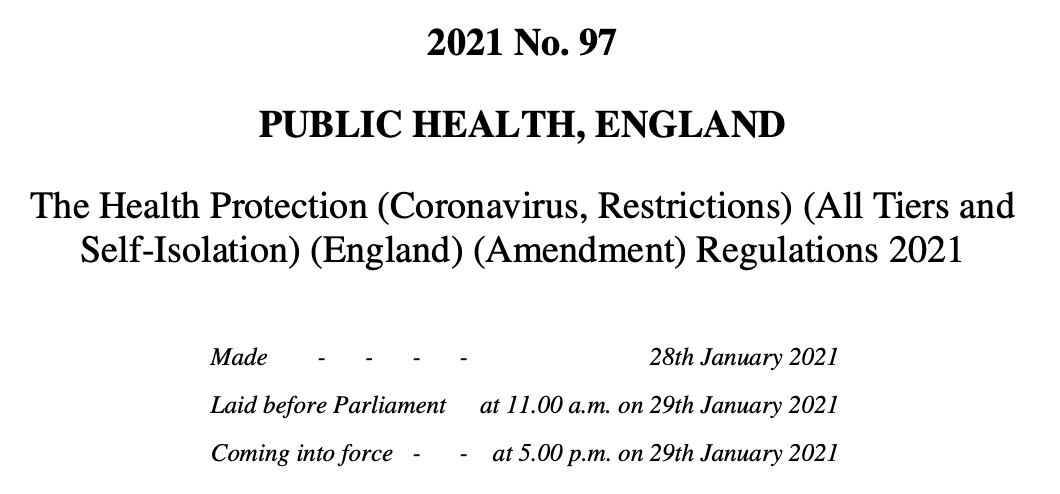
“Large gathering offence”
As trailed by Home Secretary last week there is now a fixed penalty notice of £800 (or £400 if you pay within 14 days) for participating in an gathering of over 15 people in a private residence
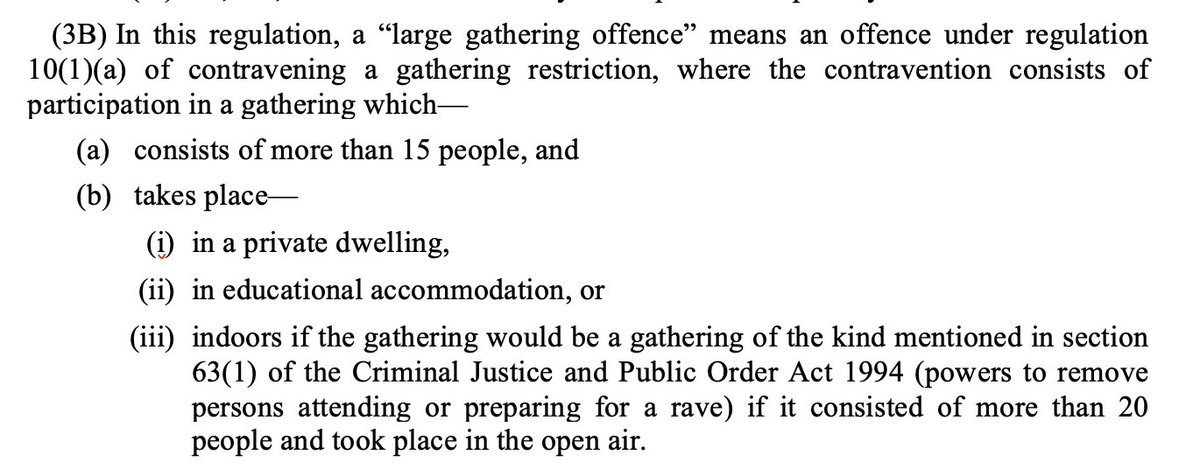
Fixed Penalty Notices double for each subsequent “large gathering offence” up to £6,400
Compare:
- Ordinary fixed penalty notice is £200 or £100 if paid in 14 days
- Holding or being involved in the holding of a gathering of over 30 people is £10,000
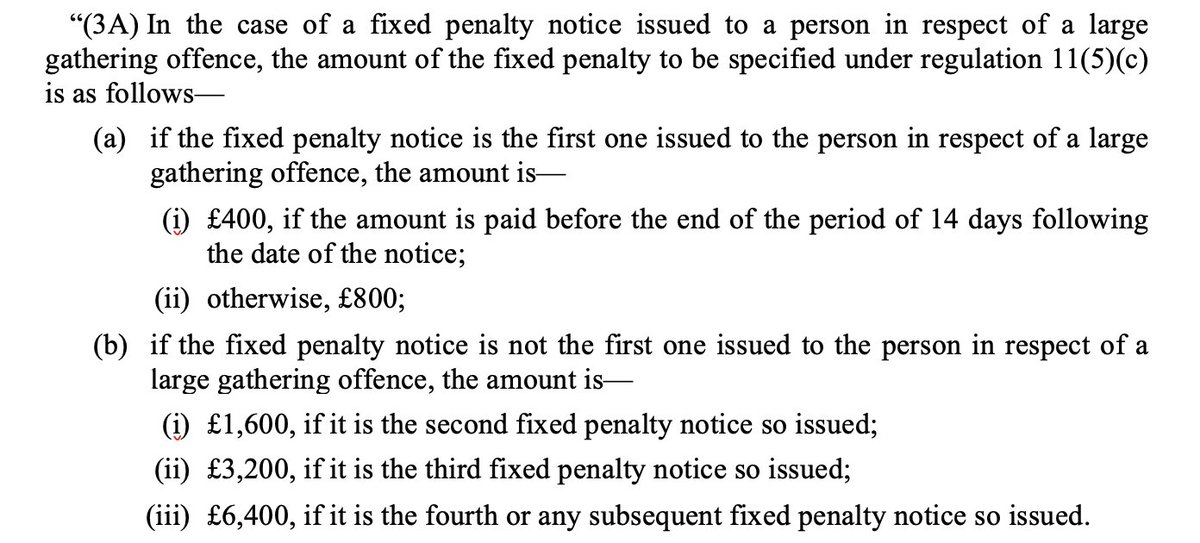
Second big change:
Since September has been a legal requirement to sell-isolate if you test positive/notified by Track & Trace of exposure to someone else who tested positive
Police can now be given access to NHS Track & Trace data if for the purpose of enforcement/prosecution
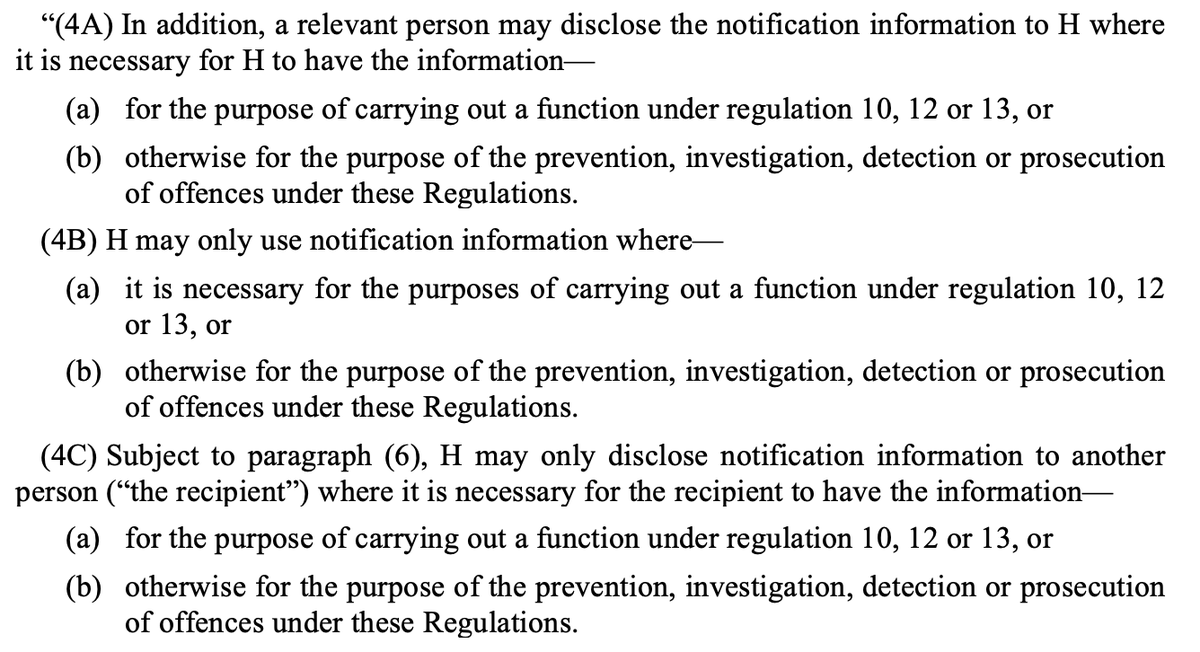
This will make it easier for police to enforce people breaking self-isolation rules. Currently there has been practically no enforcement.
Data says only a small proportion of people meant to be self-isolating are fully doing so.
Very important that obvious failures with Track and Trace and self-isolation (study late last year said 18% of people complying https://t.co/dhJUZ7Pm0l) are not painted as an enforcement issue. Plainly not. Would just pass buck to police who have almost no capacity to enforce https://t.co/Eb4Kl5Ze0E
— Adam Wagner (@AdamWagner1) January 25, 2021
You May Also Like
Always. No, your company is not an exception.
A tactic I don’t appreciate at all because of how unfairly it penalizes low-leverage, junior employees, and those loyal enough not to question it, but that’s negotiation for you after all. Weaponized information asymmetry.
Listen to Aditya
"we don't negotiate salaries" really means "we'd prefer to negotiate massive signing bonuses and equity grants, but we'll negotiate salary if you REALLY insist" https://t.co/80k7nWAMoK
— Aditya Mukerjee, the Otterrific \U0001f3f3\ufe0f\u200d\U0001f308 (@chimeracoder) December 4, 2018
And by the way, you should never be worried that an offer would be withdrawn if you politely negotiate.
I have seen this happen *extremely* rarely, mostly to women, and anyway is a giant red flag. It suggests you probably didn’t want to work there.
You wish there was no negotiating so it would all be more fair? I feel you, but it’s not happening.
Instead, negotiate hard, use your privilege, and then go and share numbers with your underrepresented and underpaid colleagues. […]




